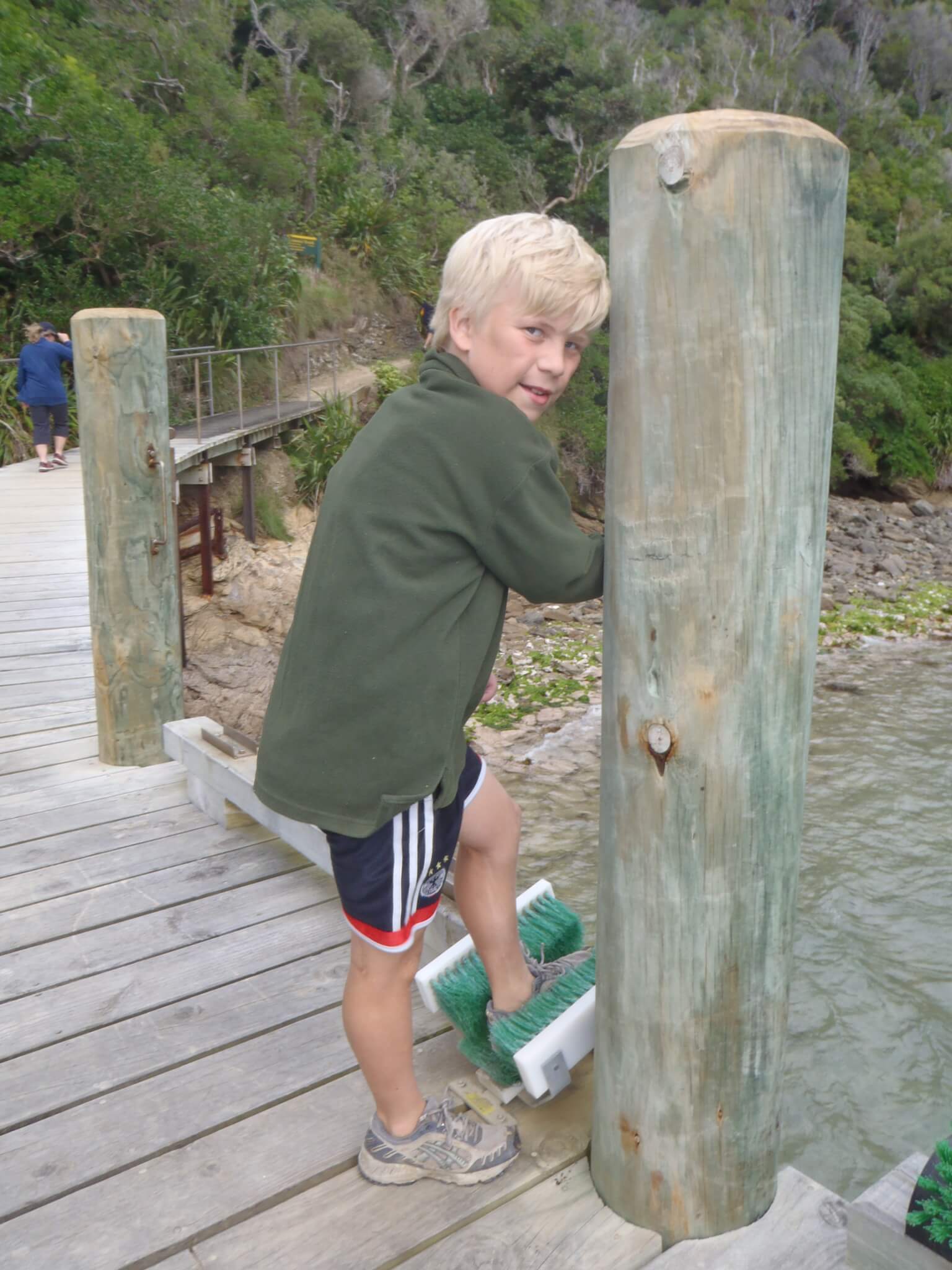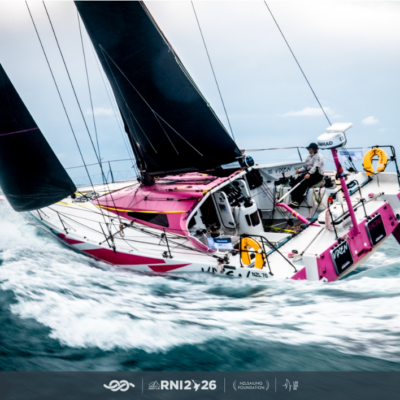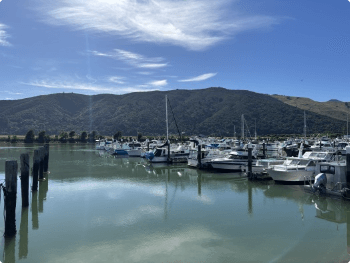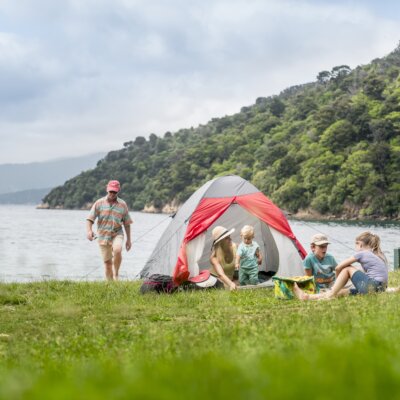Taking action to Protect our Sounds Islands
The islands of the Marlborough Sounds have a vital role in the conservation of New Zealand’s natural heritage. Our islands are home to many of the country’s rarest native animal and plant species. Almost all have remained free or have been cleared of the introduced pests that have wrecked havoc on native animals and habitats on the mainland. Without pest-free islands providing safe havens, many more species would now be extinct. 
The Marlborough Sounds has two of New Zealand highest ranked ecological treasures – Takapourewa/Stephens Island and Te Pakeka/Maud Island. Both of these islands are closed to the public to preserve their ecological values.
However, we do have some islands that are open and accessible to the public: Blumine and Motuara islands, in Queen Charlotte Sound, are home to a number of endangered species such as kakariki, robin, saddleback, mohua and kiwi. It’s well worth camping at the Blumine campground to hear the impressive dawn chorus – and many of our boaties in the marina notice the impressive sound even just in passing Bluemine and Motuara.
Your help is essential in ensuring our island sanctuaries remain pest-free and safe for our native species. Any introduction of pests, including plant or animal pests can result in the following devastating outcomes for our island sanctuaries:
- Rats eat birds, eggs, reptiles and insects.
- Mice prey on insects and eat small birds and reptiles.
- Argentine ants can reach large numbers and have a big appetite killing our native insects, skinks, geckos and baby birds.
- Plague skinks compete with native lizards and other animals for food and habitat and have displaced our native skinks on the mainland.
- Soil can carry plant diseases such as kauri dieback.
- Weed seeds can become a weed forest and smother native plants.
You can play your part in protecting the islands with the following actions:

Jetty Boot Brush
Being a responsible boatie when visiting the islands:
- Rats and mice can hide away on boats and get onto islands, even if they are moored off the island. Lay rat poison or set traps on your boat and check regularly
- Check all bags, containers and gear to ensure they do not harbour insects or weed seeds
- Scrub your footwear and check socks and pockets for weed seeds
- Check your vessel for rats, mice, ants and skinks before departing.
- Look for signs of rodents such as droppings and gnawing.
- Keep fresh bait and/or set traps on your vessel and in the area it is stored.
- Land people and supplies during the day.
- Anchor your boat offshore at night.
- Put rat guards on mooring ropes and anchor chains, and never attach mooring lines directly to land.
Why you need to check your gear
Pest animals and plants can invade our pest free (or almost pest free) islands by stowing away on or in your footwear or gear. Rats can squeeze through a 12 mm gap and mice can squeeze through a 7 mm gap. Insects could hide in your bag, and weeds, seeds and soil could cling to your clothing and shoes.
When you get there – on the island:
- Only land on islands open to the public
- Only land at designated landing sites
- Leave your dog (or cat!) on the boat
- Do not light any fires
- Take all rubbish way with you.
Protect our wildlife – in summary –
- Check –your gear for pests such as rodents and insects
- Clean –footwear and gear, removing soil and seeds
- Close –ensure your gear is zipped up (no open bags)
When you arrive on a pest-free island, you may be met by rangers to recheck your gear.
For more information on these beautiful islands in the Sounds, visit the Department of Conservation information pages here:

During World War II (1939–45), a number of large gun emplacements were built in the Marlborough Sounds as protection for a (never used) secure anchorage for the US Navy in Queen Charlotte Sound (Totaranui). Two of these emplacements were built on Blumine Island (Oruawairua), and parts of them and their associated facilities can still be seen.
Motuara Island lies in Queen Charlotte Sound opposite Ship Cove, approximately 32 km from Picton. You can get there with your own boat, by taking scenic cruise or by sea kayak. There is jetty available: Motuara Island
Experience predator free Blumine Island/Oruawairua where native species flourish, WWII military ruins can be explored and stunning views await along the island tracks. : Blumine Island
With thanks to Wendy Sullivan and James Davies from the Department of Conservation.




